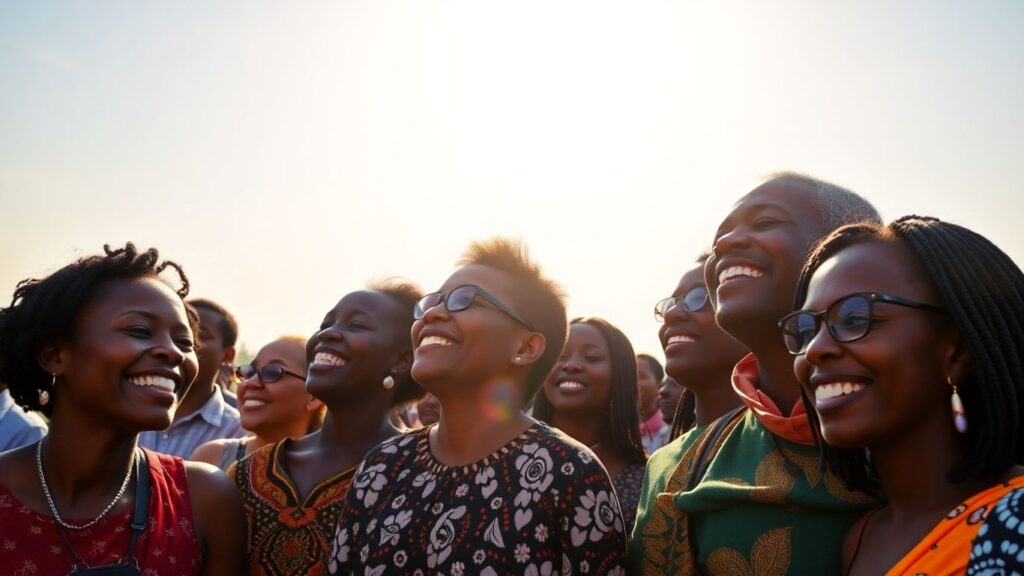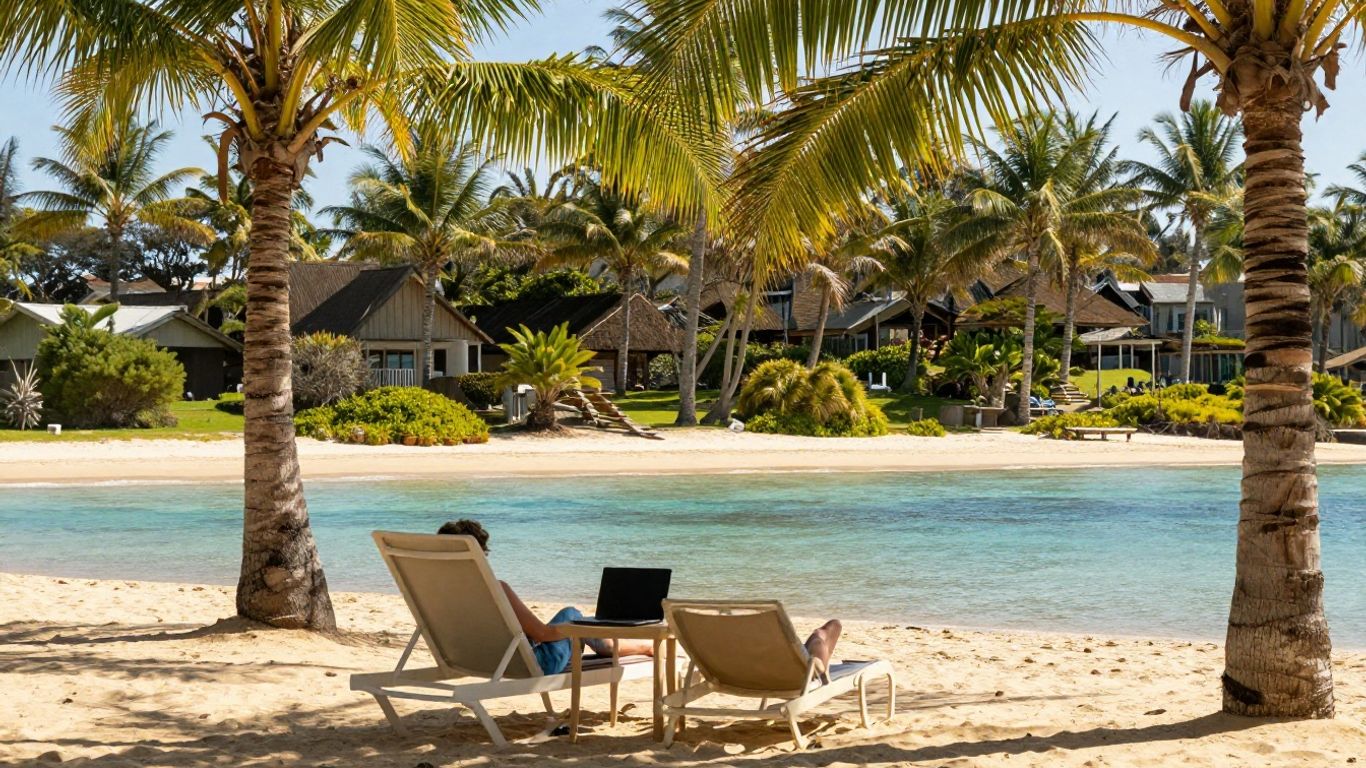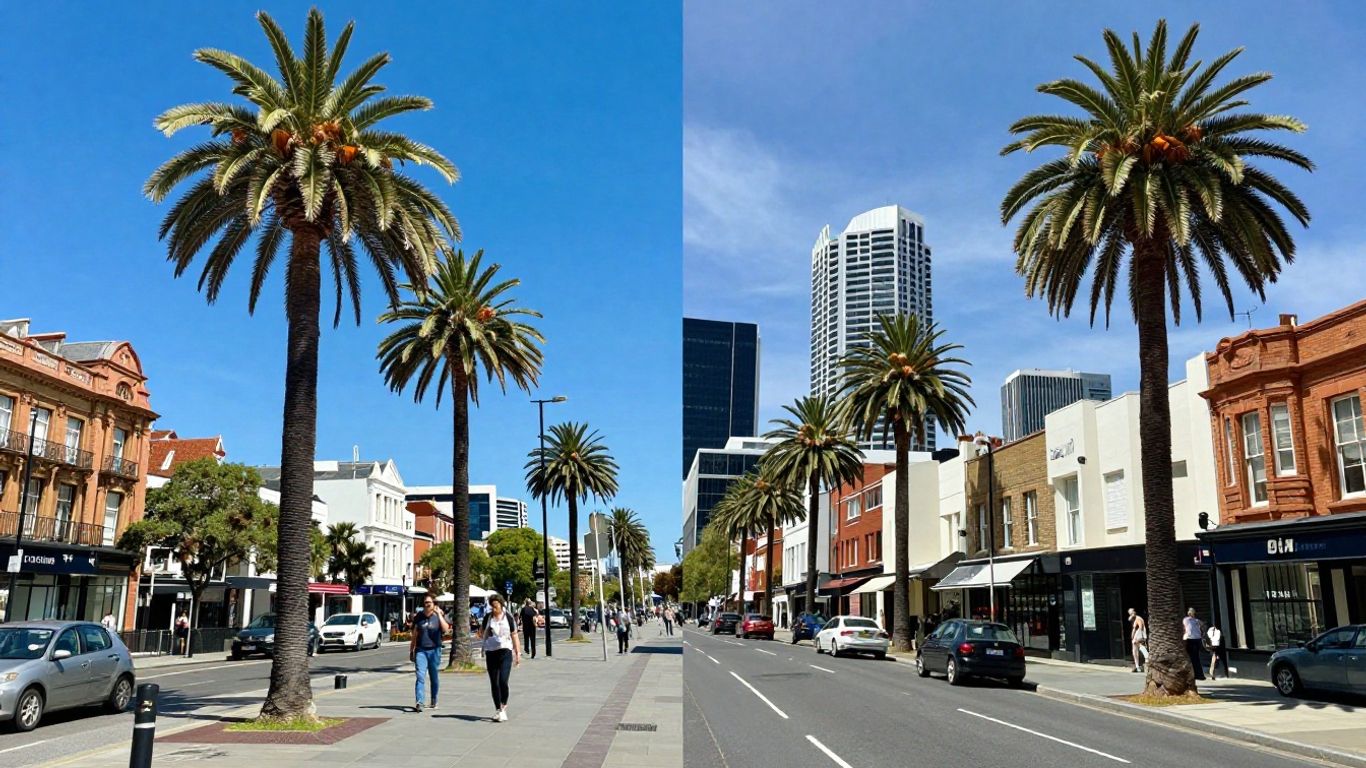Get ready for AU Day 2025, a big day for Africa! It’s all about celebrating how far the continent has come and looking forward to an even better future. Think of it as a massive continent-wide get-together, recognising all the cool stuff Africans have achieved and the amazing diversity we have. We’ll be chatting about how we can all work together to make things happen, from sorting out problems to just generally making life better for everyone.
Key Takeaways
- AU Day 2025 is a chance to celebrate Africa’s unity and achievements.
- Understanding the history from the OAU to the AU helps us appreciate the journey.
- Facing challenges like climate change and conflict is key to Africa’s progress.
- Africa’s potential is huge, especially with education and green economies.
- Global support and making sure African voices are heard are important for a brighter future.
Celebrating AU Day 2025: A United Africa
The Significance of AU Day
AU Day, celebrated on May 25th, marks a really important moment for Africa. It’s a day to remember the founding of the Organisation of African Unity back in 1963, which eventually became the African Union. This day isn’t just about history, though; it’s about celebrating the ongoing journey towards unity, independence, and progress across the continent. It’s a chance to acknowledge how far Africa has come and to look forward to what can be achieved when nations work together.
Honouring African Achievements
Africa is a continent bursting with talent, innovation, and incredible achievements. AU Day gives us a perfect opportunity to shine a spotlight on these successes. From groundbreaking scientific discoveries and advancements in technology to the vibrant arts and cultural expressions that enrich the world, there’s so much to be proud of. It’s a time to recognise the hard work and dedication of Africans who are making a real difference, both on the continent and globally.
Embracing Cultural Diversity
One of Africa’s greatest strengths is its incredible cultural diversity. With 54 countries, each boasting unique traditions, languages, and histories, the continent is a mosaic of human experience. AU Day is a fantastic time to explore and appreciate this richness. Whether it’s through music, dance, food, or storytelling, celebrating these differences helps to build understanding and strengthen the bonds between people. It reminds us that our varied backgrounds are a source of collective strength and beauty.
The Roots of African Unity
From OAU to African Union
It all really kicked off back in 1963 with the Organisation of African Unity, or OAU. This was a massive step, bringing together 32 African nations that had recently gained independence. Their main goal was to ditch colonialism and apartheid, and really start working together. It was a powerful statement of solidarity. Fast forward to 2002, and the OAU transformed into the African Union (AU), which is what we celebrate today. This change wasn’t just a name swap; it was about adapting to new challenges and aiming for deeper integration across the continent. The AU’s vision is all about a united, peaceful, and prosperous Africa, building on the foundations laid decades ago.
The Struggle Against Colonialism
Before the OAU even existed, the idea of African unity was brewing for a long time, really taking shape in the mid-1800s. Think of it as a response to the massive disruption caused by colonialism. People of African descent, many of whom were living abroad, started connecting and talking about what it meant to be African in a world that was actively trying to divide and conquer them. This movement, often called Pan-Africanism, was about building a shared identity and fighting for freedom. It’s this spirit that fuelled the independence movements across the continent, leading to that historic OAU formation. It’s a reminder that the fight for self-determination has deep roots.
Inspiring Generations Through Unity
The leaders who pushed for the OAU and later the AU had a clear vision: a continent that could stand on its own feet, free from outside interference. Figures like Ghana’s Kwame Nkrumah were instrumental in championing this idea of Pan-Africanism. They understood that unity wasn’t just a nice idea; it was a practical necessity for economic development and political stability. This commitment to working together, despite the vast differences in cultures and economies, continues to inspire people today. It’s about recognising that by pooling resources and sharing knowledge, Africa can achieve so much more. The ongoing efforts towards stronger regional integration are a testament to this enduring principle.
The core idea is that by standing together, African nations can better address shared challenges and build a future that benefits everyone on the continent.
AU Day 2025: Addressing Continental Challenges

AU Day 2025 is a chance to really look at the big hurdles Africa faces and how we can tackle them together. It’s not just about celebrating what’s good, but also about being honest about the tough stuff.
Combating Climate Change Impacts
Climate change is hitting Africa hard, and it’s not fair. We’re seeing more droughts, floods, and extreme weather that mess with farming and people’s lives. We need practical solutions that work for African communities. This means investing in things like drought-resistant crops and better water management. It’s also about pushing for renewable energy sources, like solar and wind, which Africa has in spades. Think about how we can use our natural resources for clean power, not just for export. It’s a big job, but it’s doable if we focus on what’s achievable on the ground.
Resolving Conflicts and Ensuring Peace
Peace is the bedrock for everything else. When there’s conflict, development stops, and people suffer. AU Day 2025 is a reminder of the ongoing work to sort out disputes and keep the peace across the continent. This involves supporting African-led peace missions and making sure that when agreements are made, they stick. It’s about building stronger institutions that can handle disagreements fairly and prevent them from boiling over. We’ve seen some progress, but there’s always more to do to silence the guns and create stable environments where people can thrive. It’s about creating a continent free from the shadows of violence and fear.
Overcoming Economic Hurdles
Africa’s economic potential is massive, but there are real challenges holding it back. Things like debt, unfair trade practices, and a lack of investment in key areas slow down progress. We need to look at how we can make trade within Africa easier and fairer, like with the African Continental Free Trade Area. It’s also about making sure that when we develop our resources, the benefits actually go to the people of Africa. This means better governance, fighting corruption, and creating jobs, especially for the young people who make up such a big part of our population. We need to build economies that work for everyone, not just a few.
Realising Africa’s Potential

Harnessing Natural Resources
Africa is absolutely brimming with resources, from minerals and fertile land to incredible coastlines. The trick is making sure these assets actually benefit the people living here. We’re talking about critical minerals needed for green tech, vast agricultural land that could feed millions, and renewable energy sources that are second to none. The goal is to move beyond just exporting raw materials and start adding value right here on the continent. Think processing, manufacturing, and creating jobs locally. It’s about building industries that use what Africa has in abundance to create wealth for Africans.
Investing in Education Systems
Honestly, you can’t talk about potential without talking about people, especially the young ones. Africa has the youngest population on the planet, which is a massive advantage if we get it right. That means putting serious effort into education, from early childhood right through to university and vocational training. We need schools that are well-equipped, teachers who are supported, and curricula that prepare students for the jobs of today and tomorrow. A well-educated populace is the bedrock of innovation and progress.
Here are a few key areas to focus on:
- Skills Development: Tailoring training programs to meet the demands of growing sectors like tech, renewable energy, and advanced manufacturing.
- Access and Equity: Making sure that quality education is available to everyone, regardless of where they live or their background.
- Research and Innovation: Supporting universities and research institutions to drive new ideas and solutions relevant to African challenges.
Building Green Economies
Climate change is a big deal for Africa, but it also presents a huge opportunity. The continent is perfectly placed to lead the way in renewable energy – solar, wind, geothermal, you name it. Building economies around these clean sources not only helps combat climate change but also creates new jobs and reduces reliance on volatile fossil fuel markets. It’s about sustainable growth that doesn’t cost the earth, literally. This means investing in green infrastructure, supporting eco-friendly businesses, and ensuring that development benefits both people and the planet.
The future of Africa lies in its ability to harness its own strengths, both natural and human, and to build a self-sufficient and prosperous future. This requires a concerted effort to develop its resources responsibly, invest in its people, and embrace sustainable practices that will benefit generations to come.
Global Solidarity for Africa
Strengthening International Cooperation
It’s pretty clear that Africa’s future is tied up with the rest of the world, and that means working together. We’re talking about building stronger relationships with countries everywhere, not just for aid, but for genuine partnerships. Think about trade deals that are fair, sharing knowledge about new technologies, and teaming up on big global issues like health crises or environmental protection. It’s about recognising that what happens in Africa affects us all, and vice versa. Genuine collaboration means listening to what African nations need and want, not just telling them what’s best.
Advocating for Fair Financial Systems
Let’s be honest, the current global money system isn’t always fair to developing nations, and Africa often gets the short end of the stick. Debts can be crippling, and getting loans for important projects can be a real headache. We need to push for changes that make it easier for African countries to get the funding they need to build schools, hospitals, and infrastructure. This includes looking at how international financial institutions work and making sure they support sustainable growth across the continent. It’s about creating a level playing field so everyone has a fair shot at prosperity.
Ensuring African Voices are Heard
For too long, decisions that affect Africa have been made without enough input from Africans themselves. This needs to change. Whether it’s at the United Nations, in global economic forums, or when discussing international security, African leaders and citizens must have a prominent seat at the table. Their perspectives are vital for finding real solutions to complex problems. AU Day 2025 is a chance to highlight this need and call for greater representation, making sure that Africa’s unique insights and aspirations are central to global conversations. It’s about respecting sovereignty and empowering the continent to shape its own destiny.
How to Participate in AU Day 2025
So, AU Day 2025 is rolling around, and it’s a fantastic chance for all of us to really connect with the spirit of African unity and progress. It’s not just for people on the continent, either. We can all get involved and show our support. It’s about more than just a single day; it’s about building understanding and celebrating the incredible diversity and potential Africa holds.
Engaging in Meaningful Conversations
One of the simplest yet most powerful ways to participate is by just talking to people. Start discussions about Africa’s rich history, its vibrant cultures, and the ongoing efforts towards development and unity. Share what you learn, challenge any old stereotypes you might hear, and encourage others to do the same. Let’s aim to have at least one genuine conversation about Africa’s future with someone new this AU Day. It’s amazing what a difference a good chat can make in shifting perspectives and building bridges.
Supporting African Businesses
Think about where your money goes. This AU Day, make a conscious effort to support businesses and creators from across the continent. This could mean buying products directly from African artisans, subscribing to African content creators, or even exploring African restaurants in your local area. It’s a direct way to contribute to economic growth and celebrate the entrepreneurial spirit that’s really taking off. You might discover some amazing new things, too!
Learning About African Cultures
Africa is incredibly diverse, with thousands of distinct cultures, languages, and traditions. Take some time to explore this richness. You could read books by African authors, listen to music from different regions, watch documentaries, or even try cooking some traditional dishes. Schools, for instance, can really shine here by organising events that showcase African art, music, and stories, perhaps even inviting local community members to share their experiences. It’s a chance to broaden your horizons and appreciate the continent’s vast cultural tapestry.
Embracing the spirit of Ubuntu, the African philosophy of interconnectedness and humanity, is key. It’s about recognising that we are all linked and that our well-being is tied to the well-being of others. This mindset can guide our participation, encouraging us to act with empathy and solidarity.
Looking Ahead: Our Shared African Future
So, AU Day 2025 is more than just a date on the calendar. It’s a chance for all of us, whether we’re in Africa or spread across the globe, to really think about what unity means. We’ve seen how important it is to work together, to support each other, and to keep pushing for a continent that’s peaceful and fair for everyone. Let’s keep that spirit going, learn from each other, and help build that brighter future we all want to see. It’s about celebrating where we’ve come from and, more importantly, where we’re heading, together.
Frequently Asked Questions
What’s the big deal about AU Day?
AU Day, celebrated on May 25th, is a special day to honour Africa’s amazing cultures, history, and all the cool things Africans have achieved. It’s a chance to celebrate how far the continent has come and look forward to an even brighter future together.
Why is Africa Day so important?
It all started back in 1963 when countries got together to form the Organisation of African Unity, which is now the African Union. This day celebrates the idea of African countries working together, supporting each other, and making progress on important issues like peace and fairness.
How did Africa Day start?
Africa Day began as a way to show unity against tough times like colonialism. It was born from a big meeting where African nations decided to stand strong together, inspiring people across the continent and beyond to keep working for a united Africa.
How can I join in the AU Day celebrations?
You can get involved by chatting about Africa’s importance, learning about its different cultures, and supporting businesses from Africa. It’s all about showing respect and understanding for the continent and its people.
What are some of the challenges Africa is facing?
Africa, like everywhere else, deals with challenges such as changes in weather patterns, conflicts that cause trouble, and making sure everyone has enough to eat and is treated fairly. There are also big money issues that need sorting out.
What’s the goal for Africa’s future?
The main goal is to make Africa even stronger by using its amazing resources wisely, making sure everyone gets a good education, and creating jobs that are good for the environment. It’s about building a future where everyone in Africa can do well.





